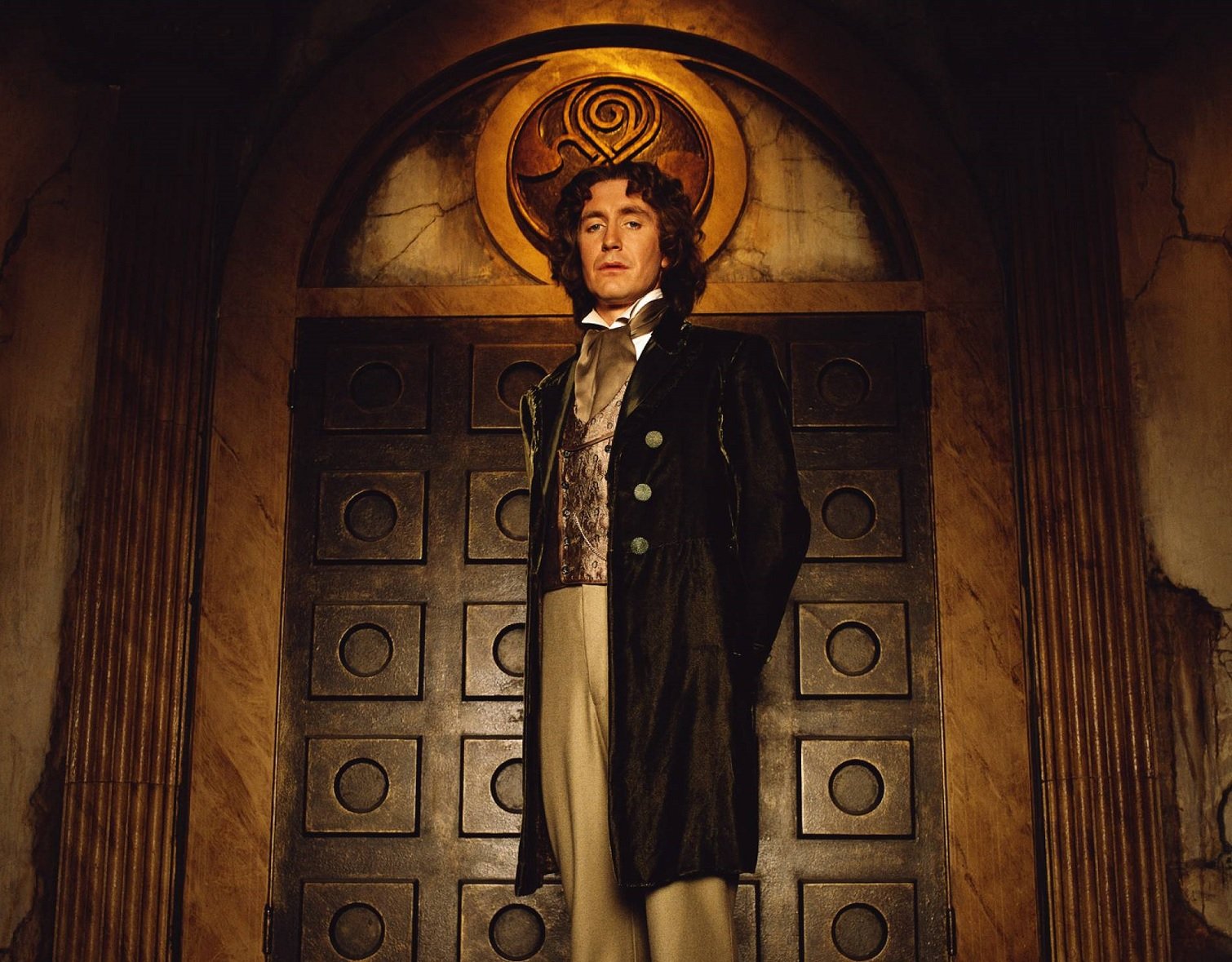The BBC listings magazine Radio Times has reported that Leonard Nimoy nearly directed the 1996 Doctor Who TV movie, starring Paul McGann.
Philip Segal, the TV movie’s producer, said:
“I had several meetings with Leonard Nimoy who wanted to direct it. I met with him at Amblin [Entertainment], and we had wonderful conversations. He was genuinely excited about the possibility.”
But plans fell through, as Segal explained:
“Fox did not want him to do it. They were concerned it looked very kitsch to go, ‘Aren’t we clever? We’ve got Spock from Star Trek directing.’”
Segal explained that Fox would only let Nimoy direct if he also played the Master:
“That was just insulting to Leonard, because that wasn’t the object of the exercise.”
Segal was interviewed as part of the publicity push for the new film, Doctor Who Am I, which centres on Matthew Jacobs’ role as writer of the TV movie, the turbulent reception he has met with from fans at conventions, and his gradual rapprochement with the programme.
It has been known for some years that Nimoy, an experienced director of Star Trek movies and such gems as Three Men and a Baby, had been linked with a possible Doctor Who film. About 30 years ago, Terrance Dicks revealed that he and Barry Letts went to see Nimoy in the States, when they were attending a Doctor Who convention, and Nimoy was lined up to direct a Doctor Who film. Relatively unfamiliar with Doctor Who, Nimoy wanted to pick their brains.
It seemed at the time that this film was intended for the cinema/theatrical release, possibly produced by the Coast to Coast/Green Light company. This was after the series ended its original run on television in 1989 but before Fox/Universal/BBC put the kibosh on Green Light’s plans by attempting to relaunch Doctor Who in the mid-’90s as a TV movie (a back door pilot for a possible television series stateside).
No further details of the Letts and Dicks meeting with Nimoy have ever been revealed, and it was assumed that the discussions came to nothing once Green Light’s ambitions to make a cinema film of the programme were ended with the Fox/Universal/BBC deal. The attempt to make a cinema movie of Doctor Who went on and on and round and round for years between 1990 and 1996, and then started again after the TV movie failed to lead to a new TV series, going interminably round and round until the BBC ended film makers’ ambitions by announcing a new TV series in 2003. More rumours of a cinema film surfaced again during Steven Moffat’s time as showrunner, until he effectively ended such speculation by saying that any movie would have to star the TV cast. As the TV cast was busy making the TV series, that ended that. Compare and contrast the 1960s Dalek movies, which could only be made with a new set of lead actors, and led to complaints and distress from children who, on seeing Peter Cushing in the cinema, wondered where William Hartnell was (as recounted by Andrew Cartmel in his diaries).
Do Segal’s comments to the Radio Times, then, indicate that the meeting Letts and Dicks had with Nimoy were about the TV movie? Or were they actually about an entirely separate film, as originally thought? Was Nimoy in the frame to direct two Doctor Who movies – one for the cinema, and one which became the TV movie – or was his meeting with Letts and Dicks actually about planning for the TV movie?
And the idea about Nimoy playing the Master is, to coin a phrase – fascinating. Would an actor of his talent and calibre have given us a better Master than Eric Roberts’ excellent performance? It would certainly have been interesting to see Nimoy play a villain.



